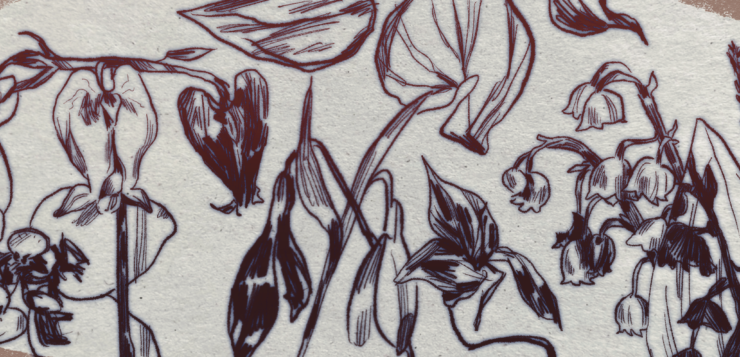Sex is one of those subject areas in school that is never taught widely enough, but is also seemingly all there is to be discussed. I hadn’t registered the word ‘sex’ until I was nine years old, and even then, everyone on my table used it as a joke. Regardless, I had a deep feeling that we shouldn’t have been saying the word, for reasons that I didn’t fully understand. Naturally, it felt like a really funny joke. That was until British sex education began, in all its ambiguity…
I remember every scientific term and those weird cartoons that everyone in Britain above the age of eleven will mutually remember. ‘Zygote’, ‘meiosis’, ‘identical and fraternal twins’ – all of the words that imply sex, without actually having to talk about it. Virginity was never a subject of conversation in science; it was part of religious and ethical studies. Even then, it was your standard talk about chastity, homosexuality, and purity. We walked away with a vague understanding of virginity.
By secondary school, everything I had learned about sex had originated from my own peers. The word ‘virgin’ came up a lot. Who is a virgin, who isn’t? In what ways are they a virgin, in what ways are they not? From these conversations alone, it was clear that something was shifty about the concept of virginity. Some people kind of were and kind of weren’t. But it would take such a toll on your social status. The working definition of ‘virgin’ was never set in stone, but you could still tell who was sexually active and who wasn’t by the way they were treated.
Rumours, gossip, and hearsay would arise out of the blue about someone’s sex life, and with this, their treatment at school would suddenly change. They became ‘players’ as guys or ‘slutty’ as girls. On the flip side, they were considered ‘prudish’, ‘frigid’, or a ‘tease’ if someone’s advances were rejected, or were knowingly holding out on sex. All these social complications don’t even take into account what virginity means among those who don’t fit into a heteronormative framework. Amongst gay people, what is the concrete way of saying that you have lost your virginity? As a fifteen-year-old, I thought it must have been some inexplicable change in the air, in the way people acted, or the energy that they gave off once they lost their virginity, which made it so obvious. How can we know so much about a person based on whether or not they have had sex?
For a concept that implies people’s purity, moral standing, and religious piety, virginity actually has no working definition. There are no physical markers among men or women as to whether they are a virgin or not (although an abundance of film and media would suggest otherwise). Despite this, for the most part, the concept of virginity and its perceived entailments has been detrimental to women. Although men are often shamed and harassed for their virginity, the loss of virginity for women can be the difference between social inclusion and exclusion; marriage and rejection, and a morally pure woman and one who is ‘not the type to bring home to the parents’. We do not have an objective definition for virginity. Instead, it is a social tool that has harmed, isolated, and in many instances, killed, women who did not fit into its narrow parameters.
Even the origin of the word ‘virgin’ specifically connotes a sexually inexperienced young woman, in particular. The importance that is ascribed to a woman’s virginity places women in danger across many different cultural landscapes. Even in places where there is less stigma against premarital or casual sex, the mere presence of virginity is problematic for women and girls.
The perceived personality traits that supposedly accompany virgins (such as purity, innocence, and naivety) are actively sensationalised and sexualised. A woman’s first time is something to be sought after, and the act of ‘taking’ someone’s virginity is an accomplishment, an act of conquest. This further perpetuates the idea that a woman’s body is purely reactive to men’s sexual desires, rather than an active body with its own sexuality and agency. The idolisation of women’s virginity only exacerbates the notion of women being at the behest of men.
We only need to look at the resurgence of the ‘Lolita aesthetic’ to understand the dark side of equating virginity with innocence and purity. Regardless of intent, romanticising sexual innocence endangers young girls. The iconic heart-shaped sunglasses not only remind us of Vladimir Nabokov’s masterpiece, but drag us into the widespread misinterpretation of it that romanticised a predatory idolisation of young girls. From Lana del Rey to Alice-in-Wonderland-esque fashion trends, the conflation of virginity and innocence naturally leads us down an ethically disturbing approach to sex, targeting young girls and ignoring the sexuality of adult women.
The myriad of social problems that have come about in the name of preserving one’s virginity and the supposed purity of women demands a drastic revamp regarding how we examine sexual experience. It may be too much to ask people to mind their own business, but at the very least, we can try to remove the perceived connection between someone’s sexual experience (or lack thereof) and their consequent social worth.
Disclaimer: The views expressed within this article are entirely the author’s own and are not attributable to Wessex Scene as a whole.




